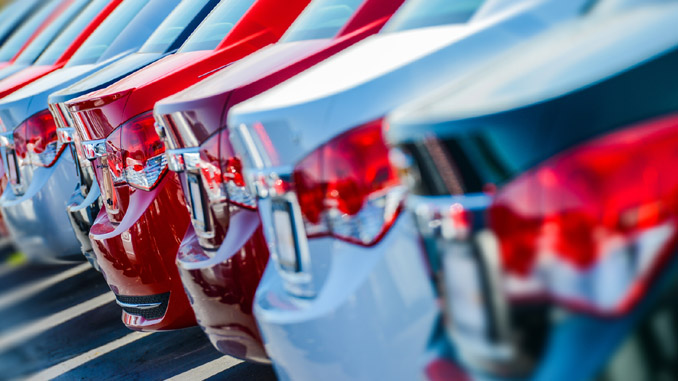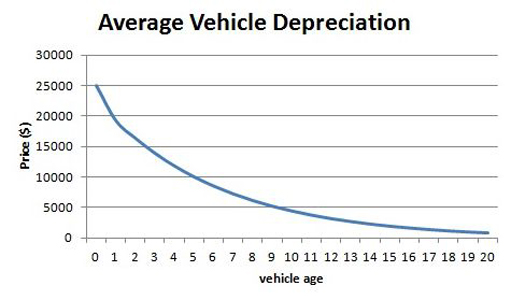

Mike Ballew – Engineer, author, and Eggstack founder.
Eggstack is an independent financial technology company located in Jacksonville, Florida. Our mission is to help you overcome uncertainty about retirement planning and inspire confidence in your financial future.

When you buy new, you get that great new car smell, and who doesn’t love that? Plus, you get a warranty. But used automobiles are cheaper. So which is better?
Many people believe buying new is the smart choice because it’s unlikely that you will have any problems with it for the first few years. If you do have an issue, the warranty will cover of it.
While that may be true, there’s something to be said about not having a car payment. Used automobiles are less expensive so you will reach no-car-payment-nirvana much sooner.
That new car smell is actually VOCs (volatile organic compounds) off-gassing from vinyl and plastic surfaces. VOCs are toxic to both humans and animals. So despite the joy we experience basking in the glory of new car smell, it’s actually not good for us.

Perhaps you have heard that the value of a new automobile drops the moment you drive it off the lot. That's because it’s no longer new. Used vehicles do not command the same prices that new vehicles do. The problem with a new automobile is it depreciates rapidly during the first few years. After that, the rate of depreciation levels off as shown in the chart.
You do not have to buy a new automobile to get a warranty; many used automobiles have warranties, too. Unless the age or mileage limitations of the manufacturer’s warranty have been exceeded, the balance of the warranty is transferred from the original purchaser to the new owner. Even if a used automobile is no longer covered by the manufacturer’s warranty, many dealers provide their own warranties. It’s a myth that getting a used automobile is essentially buying someone else’s troubles. In this age of CarFax and lemon laws, you are not taking a huge risk by buying a used automobile.
The best argument against buying used is that your maintenance and repair costs will likely be higher. While that may be true, those increased costs will be more than offset by avoided depreciation costs.
Let’s look at an example. Suppose you buy a new automobile for $35,000 and trade it in five years later for $20,000. The net cost is $15,000 ($35,000 - $20,000). Next, you buy a used vehicle for $20,000 and trade it in five years later for $12,500. The net cost is $7,500 ($20,000 - $12,500). That’s half as much as the new automobile.
Sales tax rates are no different whether you buy new or used, but in terms of dollars there is a difference. Used automobiles cost less so you pay less in sales tax. One unfortunate aspect to buying a used automobile is that lending institutions charge a higher interest rate for used automobile loans. It is not a great deal of difference; ballpark you will pay about $50 extra each month in interest over the life of the loan buying used vs. new.
Used automobiles are easier on your wallet than new automobiles. If you can’t face the prospect of never owning a new automobile, buy one. Once you've gotten that out of your system, buy used.
If you are repulsed by the thought of driving an automobile that someone else has owned, spend a day cleaning it. Then you can fill it up with your own germs. Besides, ever drive a rental car or sleep in a hotel room? We experience used things every day.
For most people, an automobile is the second most expensive thing that you own. You will waste many thousands of dollars buying a new automobile every few years. It pays to be wise about automobile purchases. Let someone else take the hit on depreciation.
Photo credit: Pixabay Eggstack News will never post an article influenced by an outside company or advertiser. Our mission is to help you overcome uncertainty about retirement planning and inspire confidence in your financial future.